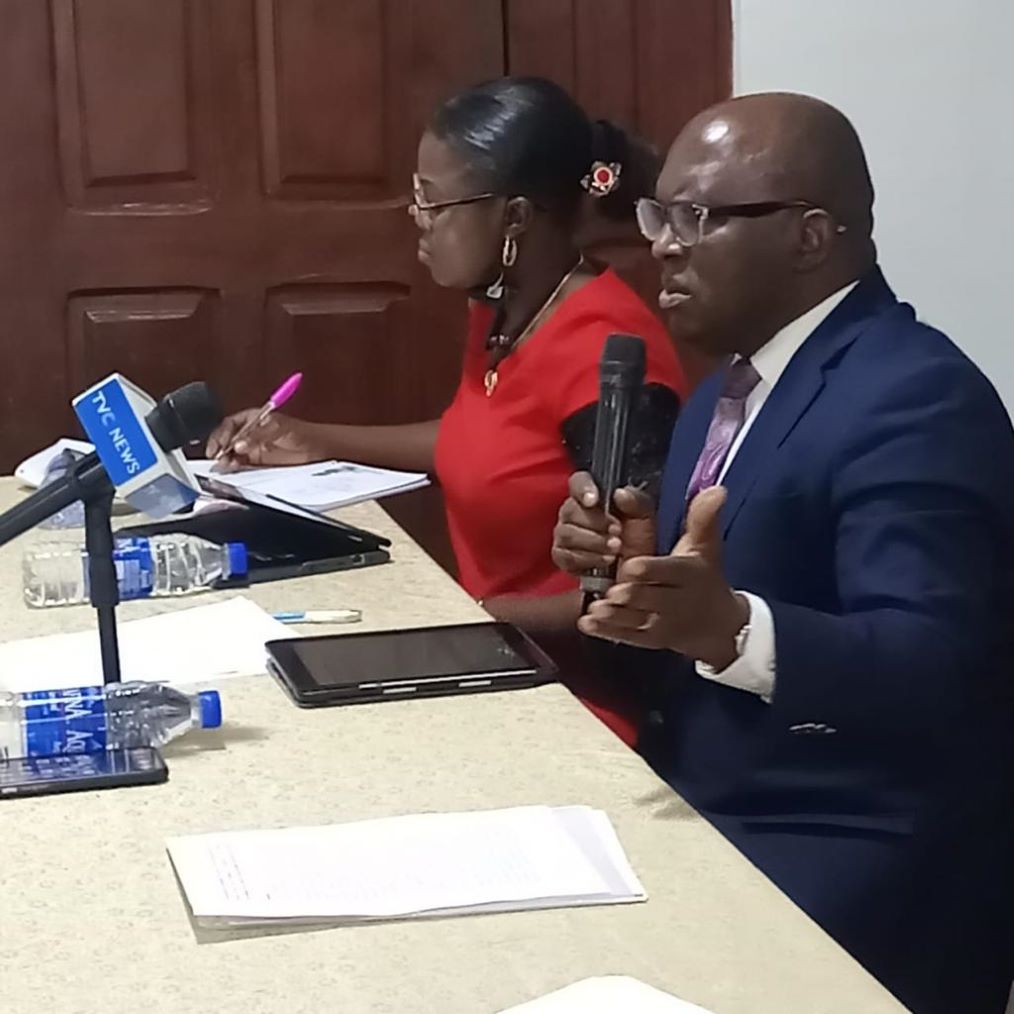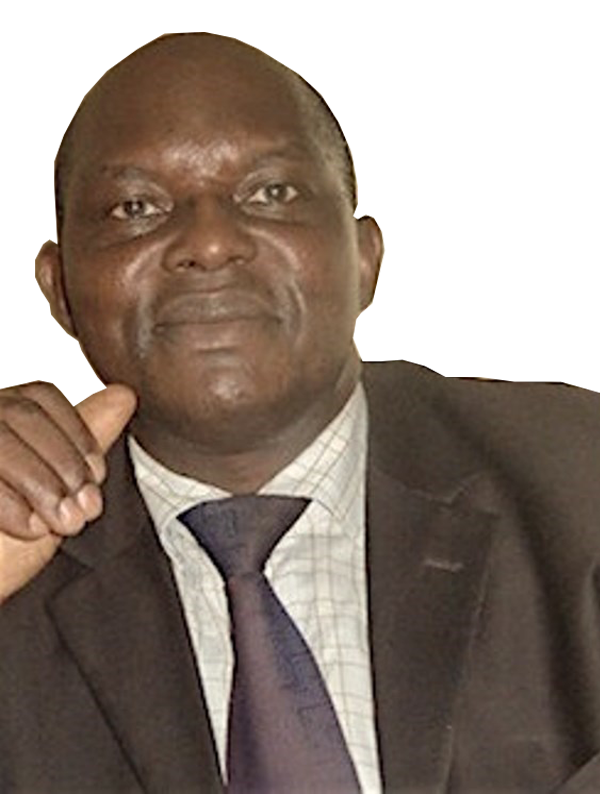Dipo Kehinde/
Unless the Federal Government strengthens local laboratories and builds capacity, the problems of adulterated fuel that increases the risk of cancer in Nigerians will persist says the Society of Testing Laboratory Analysts of Nigeria (SoTLAN) today.
Addressing a press conference at Ostra Halls, Alausa, in Lagos, the President of SoTLAN, Professor Olugbenga Ben Ogunmoyela urged the government to stop putting the fate of the nation in the hands of foreign labs that are not in any way superior to many of Nigeria’s lSO 17025 accredited local laboratories.
Prof. Ogunmoyela frowned at the economic disruptions and damages caused by the delivery of contaminated fuel across Nigeria. He described it as a national embarrassment and urged the government to look inwards for a lasting solution to the importation of methanol-contaminated petroleum motor spirit into the country by the NNPC or other authorized companies.
He said, “It is a known fact that due to the current subsidy regime, NNPC is the sole supplier of all PMS in Nigeria, charged with the purchase, importation, distribution, or marketing of petroleum products supplied to some major marketers. The product delivered was reported to “appear hazy and dark and was consequently isolated, probably following complaints received after having been released. it is further stated that ‘upon analysis, it was confirmed that the PMS product was contaminated with 20% methanol, which is an illegal substance in Nigeria’. While it is reassuring that NNPC has taken necessary steps to reject further imports of this type of product from any trader supplying fuels that contain ethanol/methanol into Nigeria, the question is, why should we still be talking about substandard and contaminated products in a petroleum industry which has been prominent in our economy for over sixty years?”
Prof. Ogunmoyela reckoned that sufficient education and consumer awareness are needed, adding that if the product hasn’t met the National Standard, it should be returned to the source, instead of making Nigeria a dumping ground.
He said, “We, the Society of Testing Laboratory Analysts of Nigeria, therefore, note with regret, the recent issue of adulterated Petroleum Motor Spirit (PMS) imported into the country, which has not only been an embarrassment but has caused severe and unwarranted hardship on citizens of the country by way of damage to vehicular engines, fuel scarcity, and traffic gridlocks.
“It is clear that the nation has a challenge of scarcity of foreign exchange and has demonstrated an avowed commitment to look inwards. Yet, for many years, it has persistently chosen to patronize mainly foreign laboratory companies in the analysis and certification of imported petroleum products into the country. It is sad, that the government agency in charge has come out to claim that the imported fuel had a high methanol content, which was somehow not detected during testing, because this is not in the normal testing protocol, before being released to depots for lifting.
“This statement begs the following questions: Who are those responsible for the testing? Who are those responsible as Supervisory Agencies? What sanctions are to be meted out to such erring Companies/Analysts/Laboratories? Will this just go away like others in the past or will those who are specifically responsible be held accountable? What happens now to the PMS product withdrawn and quarantined. Will these not be re-blended and later sold to Nigerian consumers? If re-blended, can the PMS product achieve a Nil methanol content as specified in the Nigerian Industrial Standard, NIS 116:2017, Standard for Premium Motor Spirit? What lessons do we learn from this unfortunate experience?”

Tracing the history of SoTLAN, Prof. Ogunmoyela said, “Prior to the promulgation of the Food and Drugs Decree of 1974 of the then Federal Military Government, laboratory practice by independent laboratories in Nigeria was at a low level, as the practice revolved around scientists in the tertiary institutions and few research institutions for teaching and research purposes. However, the promulgation of the Food and Drugs Decree of 1974 aimed at ensuring that Nigerians were given consumer products, which include food, drugs, cosmetics, and other products of standard and internationally acceptable quality. This made it glaring that to effectively carry out the provisions of the decree, there was a need for the Government to fully recognize the practice by law.
“Consequently in 1977, the Federal Ministry of Health designated the first set of Food and Drugs Analysts who incidentally became the foundation members of the then Society of Public Analysts of Nigeria (SPAN). On recognition by the government, their designation as “Public Analysts” emerged, with this description taken after the Association of Public Analysts of the United Kingdom for the professional regulation and practice of Public Analysis.
“By Decree 100 of 1992, the government later created the Institute of Public Analysts of Nigeria (lPAN) which was thereafter amended by the IPAN Act CAP.l16 LFN of 2004. This Act recognizes a Public Analyst as a Registered Member of the Institute of Public Analysts of Nigeria (lPAN) who, after obtaining the relevant license of the Institute, is empowered to carry out laboratory analysis and other related functions on Food, Drugs, Medical Devices, Cosmetics, Water, Chemicals, and other products. Thereafter, he/she issues certificates of fitness or otherwise on the products for the purpose of human use. It is only such certificates that are tenable in any law court or tribunal of the land.
“This law provides opportunity and recognition for Public Analysts to operate independent Analytical laboratories in the country and offer services to individuals, public and organizations at prescribed fees. It is therefore unexplainable that after over four decades of existence, the government has yet to directionally support and empower such an important sector as our local analytical laboratories to be able to effectively play their role in the economy and grow to levels, which are comparable with other parts of the world. By our last count, although we have very specialized and excellent local analytical laboratories, many of them are struggling in the face of huge infrastructural and working capital challenges, poor patronage and constantly rising costs of imported equipment and reagents which make effective planning and survival difficult, if not impossible.
“Early in 2014, Professional Members saw the need to re-establish the Professional Body, which now emerged as SoTLAN, to be able to effectively carry out the functions of a Professional Association. This is the origin of the present-day Society of Testing Laboratory Analysts of Nigeria (SoTLAN), which started as the Society of Public Analysts of Nigeria (SPAN) in 1978. it is on record that many members of the Association are already in practice in various analytical areas, including the Environmental, Petroleum, and other sectors, working in close collaboration with many government agencies such as Environmental Protection Agencies across the country and the Department of Petroleum Resources.”
The industry watchdog also noted that as far as laboratory testing/analysis is concerned, the institution recognized by law in Nigeria to regulate and register Analytical Laboratories owned by members and nonmembers alike is the institute of Public Analysts of Nigeria (IPAN) established under the lPAN ACT CAP. l16 LFN 2004.
Prof. Ogunmoyela said, “Over 1,200 professional members of this institute belong to our Professional Association known as the Society of Testing Laboratory Analysts of Nigeria (SoTLAN). Yet because of financial incapacitation, we have less than 50 registered Laboratories, in Nigeria today, that have achieved international accreditation due to lack of support, compared to over 500 such laboratories in South Africa. It is therefore our opinion that, as key stakeholders of high integrity, we should be involved in all forms of laboratory testing of products in Nigeria. This unfortunate experience, therefore, presents an opportunity for us to re-examine our present policy and look inwards to help strengthen the capacity of our Local Analytical Laboratories by patronizing them, building capacity where necessary, and encouraging the growth of the sector, rather than continued dependence on foreign firms.’
“In fact, it is on record that many of our members, such as Prof Oladele Osibanjo, an internationally respected scientist who was celebrated by UNEP not too long ago, as well as other Professionals in Laboratory practice, have played major roles in mitigating many major environmental issues in the past. For example, we remember the dumping of chemical wastes in Koko and other places in the country in the late eighties. Armed with scientific evidence, they drew the attention of the public to this challenge, which eventually led to the setting up of the Federal Environmental Protection Agency, FEPA, and later, the National Environmental Standards and Regulations Enforcement Agency, NESREA. It is therefore high time that we as Professionals are given the opportunity to serve as a form of check and balance in the certification of quality of our fuel imports to help prevent the type of hardship and embarrassment we are currently experiencing on our fuel imports.
“We must also recall that this is not the first time that we are experiencing this type of incidence. We had a similar occurrence in 1997 when General Sani Abacha was Head of State. It will be recalled that one of our Senior members, in the person of Hon Niyi Akinyugha, was also involved in the analysis that resolved the issue.”
In his submissions, Prof. Ogunmoyela, who was accompanied by SoLTAN’s General Secretary – Mr. Bashiru Nureni, and the Financial Secretary, Dr. Adeola Ayano, appealed to the government to take urgent steps to support and empower Public Analysts and Relevant Testing Laboratories to be able to safeguard the integrity of all materials for testing in laboratories nation-wide.
He said, “We can no longer afford to put the fate of the country in the hands of foreigners. We have scientists and professionals practicing locally of high integrity, who are well respected and recognized all over the world, and we recognize the importance of supporting and investing in the development of our Laboratory Sector to international standards so that we can look inwards.
“SoTLAN also wishes to assure the government and its agencies of its readiness to co-operate and collaborate in making quality and sustainable conformance of products such as PMS possible in Nigeria.”
In his contribution, a member of SoTLAN, Mr. Femi Olawore urged the authorities to do things professionally and with integrity.
0




